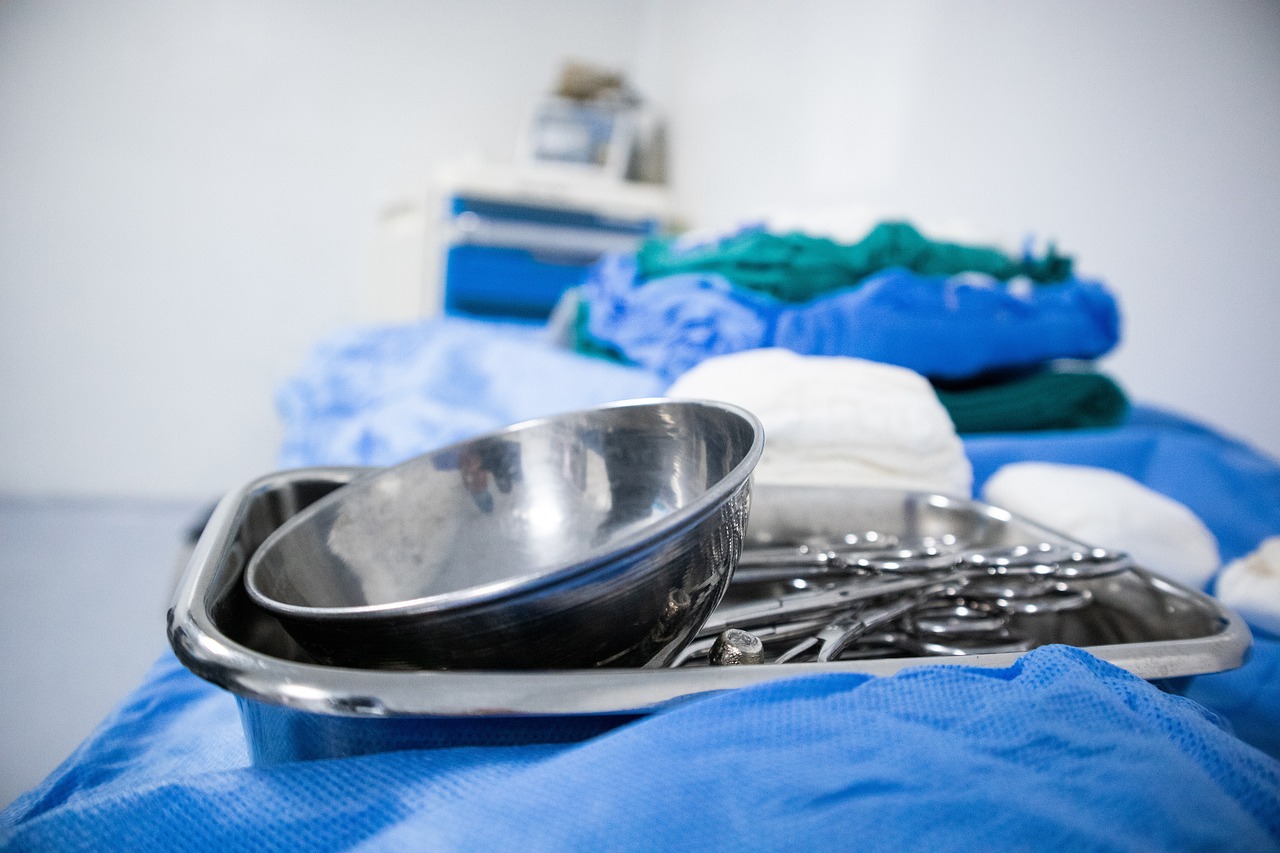Suboxone and surgery is a medication primarily used to treat opioid addiction. It contains two active ingredients: buprenorphine and naloxone. Buprenorphine is a partial opioid agonist, which helps reduce cravings and withdrawal symptoms, while naloxone prevents misuse of the drug. For individuals taking Suboxone, there are important considerations when undergoing surgery.
One of the key concerns is how Suboxone may affect pain management during and after surgery. Since buprenorphine can bind to opioid receptors, it may impact the effectiveness of other pain medications, particularly opioids, which are commonly used during and after surgery. It’s important for both patients and healthcare providers to understand how to manage pain in such cases.
How Suboxone Affects Pain Management
When you take suboxone and surgery, it interacts with opioid receptors in the brain but in a way that is different from full opioids like morphine or oxycodone. This means that it can help alleviate withdrawal symptoms without giving you the full “high” associated with other opioids. However, during surgery or after an operation, Suboxone and surgery can make it harder to manage pain with standard opioid painkillers.
Buprenorphine, the active ingredient in Suboxone and surgery, has a strong affinity for opioid receptors. It may occupy these receptors and prevent other opioids from working as effectively. This could lead to insufficient pain relief if opioid-based pain medications are used during or after surgery. Because of this, surgeons and anesthesiologists may need to adjust their approach to pain management for patients on suboxone and surgery.
What to Do Before Surgery While on Suboxone
If you are on suboxone and surgery, it’s important to inform your surgeon and anesthesiologist ahead of time. Communication with your healthcare team is key to ensuring that proper precautions are taken. You might be advised to continue taking Suboxone and surgery up to the day of your surgery, but your doctors will likely monitor your pain management more closely.
In some cases, your healthcare provider may suggest tapering off suboxone and surgery, but this decision depends on the type of surgery and your overall health. It’s essential that any adjustments to your medication are made under the supervision of a doctor to avoid withdrawal symptoms or other complications.
Pain Management Options for Suboxone Users During Surgery
For people on suboxone and surgery, managing post-surgery pain can be more complicated. Since opioids may not work as expected, your doctor may suggest alternative pain management strategies. These can include non-opioid pain medications, such as acetaminophen, ibuprofen, or nerve blocks, which can be used in combination with or instead of opioids.
In some cases, regional anesthesia, like an epidural or a nerve block, can provide effective pain relief without the use of opioids. These methods target specific areas of the body and help manage pain without affecting the entire system. Additionally, your doctor may use lower doses of opioids, carefully monitored to ensure they are effective while minimizing the risk of side effects or dependency.
Risks of Stopping Suboxone Before Surgery
If you are advised to stop suboxone and surgery, it’s important to know the risks. Suboxone is designed to help individuals manage opioid dependence, and stopping it suddenly can lead to withdrawal symptoms. These symptoms can be uncomfortable and, in some cases, dangerous.
Common withdrawal symptoms include anxiety, irritability, nausea, and sweating. In severe cases, it may lead to more serious symptoms like seizures or dehydration. For this reason, it is crucial that any changes to your medication are done gradually and with medical supervision. Never stop suboxone and surgery abruptly without your doctor’s guidance.

Alternatives to Suboxone During Surgery
If you are taking suboxone and surgery, your doctor may consider switching you to other medications for pain management. These options may include non-opioid painkillers or alternative therapies such as physical therapy, acupuncture, or relaxation techniques.
Some patients may also be prescribed other medications that can help manage opioid cravings during the recovery period after surgery. These medications are specifically designed to reduce the risk of relapse while minimizing withdrawal symptoms and helping manage pain effectively.
It’s important to work with your healthcare team to find a solution that works best for you, as each person’s needs may vary depending on their condition and the type of surgery they’re undergoing.
Managing Post-Surgery Recovery While on Suboxone
After surgery, people on suboxone and surgery need careful attention to ensure their recovery process is smooth and effective. Post-surgery pain management remains a priority, and careful consideration of the medications prescribed is essential to prevent issues such as inadequate pain relief or opioid misuse.
While opioids may not work as well for individuals on Suboxone, doctors will have a range of strategies to manage pain. Non-opioid medications, nerve blocks, and physical therapy may all play a role in the recovery process. Patients on suboxone and surgery should also be mindful of potential interactions between their medication and any new treatments prescribed post-surgery.
It’s important to attend follow-up appointments to ensure that the pain is being managed effectively and that there are no complications in the recovery process.
Additional Considerations for Surgery While on Suboxone
Beyond the immediate concerns about pain management, there are other important factors to consider when undergoing surgery while taking Suboxone. One key consideration is the potential for drug interactions. Suboxone can interact with various other medications, which may affect anesthesia and the overall surgical outcome. Therefore, it is essential to discuss your full medication regimen with your surgeon and anesthesiologist.
Some medications used for anesthesia, particularly opioids, may be less effective in individuals taking Suboxone. This is because buprenorphine, the active ingredient in Suboxone, binds tightly to opioid receptors and can prevent other opioids from working effectively. In some cases, this may mean that higher doses of anesthesia or alternative forms of sedation are required.
Additionally, if you have a history of opioid use disorder, your healthcare team may need to adjust your treatment plan to ensure that your recovery from surgery does not trigger a relapse. This often includes a more personalized approach to pain management and monitoring for any signs of distress.
Psychological Considerations During Surgery and Recovery
When undergoing surgery, individuals on Suboxone may also face psychological challenges. These can include concerns about pain management, the risk of relapse, or anxiety about the surgical process itself. It is important to address these concerns with your healthcare team, as managing mental health is just as crucial as managing physical health during recovery.
For many people recovering from surgery while on Suboxone, the combination of physical pain and emotional stress can be overwhelming. Ensuring that psychological support is available is important for maintaining overall well-being. This might include counseling or support groups for individuals in recovery from opioid addiction, as emotional support can significantly improve the healing process.
Long-Term Management After Surgery
After surgery, your focus will shift to recovery. For those on Suboxone, managing long-term pain while avoiding dependency on opioids is critical. Your healthcare team will work with you to develop a pain management plan that aligns with your recovery goals. This plan may include non-opioid pain medications, physical therapy, and other strategies to minimize discomfort without relying on opioids.
It’s also important to monitor for any signs of relapse, especially in the first few months after surgery. The stress of recovery combined with the use of pain medications can sometimes trigger cravings. Having a strong support network and staying in close contact with your healthcare providers will be vital to your long-term success.
Working Closely with Your Healthcare Team
One of the most important aspects of undergoing surgery while on Suboxone is maintaining open and honest communication with your healthcare team. This includes your surgeon, anesthesiologist, primary care doctor, and any addiction specialists involved in your care.
By working together, they can create a comprehensive plan that addresses both your pain management needs and your recovery from opioid addiction. With the right approach, you can have a successful surgery, manage your pain effectively, and continue your recovery from opioid dependence.

Navigating Post-Surgery Challenges While on Suboxone
Recovering from surgery is a complex process that can be even more challenging when you are on Suboxone. In addition to physical pain, the emotional and psychological impact of surgery and recovery can be intensified by concerns about opioid dependence. Managing both aspects is important to ensure a smooth recovery.
It is essential to remember that everyone’s recovery experience is different. While some individuals may experience minimal pain after surgery, others may require more intensive pain management. For those on Suboxone, the focus should be on finding a balanced approach to pain relief that does not compromise the healing process or jeopardize recovery from opioid addiction.
Healthcare providers often recommend a combination of non-opioid pain relief strategies, including physical therapy, alternative medications, and psychological support. By taking these measures, you can manage post-surgery pain while continuing to adhere to your treatment plan.
Building a Support System During Recovery
The role of a strong support system cannot be overstated when recovering from surgery while on Suboxone. This support system may include family members, friends, addiction counselors, and healthcare providers.
Having someone to talk to about your concerns during recovery can help alleviate anxiety and feelings of isolation. It’s especially important to stay connected to addiction recovery programs or groups during this time. These groups can offer not only emotional support but also practical advice on how to manage pain and stress without falling into old habits.
In addition to emotional support, physical assistance may be necessary during the first few weeks after surgery. Whether it’s help with daily activities or transportation to follow-up appointments, having reliable people around you can ease the burden of recovery and allow you to focus on healing.
Potential Impact of Suboxone on Surgical Healing
Another consideration when taking Suboxone during surgery is how it may influence the healing process. Buprenorphine, the active ingredient in Suboxone, can sometimes affect the body’s ability to heal after surgery, as it may alter certain biological processes. For example, buprenorphine’s interaction with opioid receptors can affect inflammation and pain signaling, which can slow the natural healing response.
However, it is important to note that these effects are not always severe and can be managed with proper medical oversight. Doctors may monitor your recovery more closely to ensure that you are healing at an appropriate rate, and adjustments can be made to your treatment if needed.
Importance of Follow-Up Care
After surgery, it is essential to attend follow-up appointments with your healthcare provider. These visits help ensure that your recovery is progressing as expected and provide an opportunity to address any concerns related to Suboxone use, pain management, or potential complications.
Your healthcare provider will likely monitor for signs of pain, infection, or any other concerns that may arise during the healing process. Since you are on Suboxone, it is also important to monitor for any signs of withdrawal or the need for adjustments in your medication. Regular communication with your doctor is crucial for maintaining a successful recovery, and they can provide the best guidance on when and how to adjust your treatment plan if necessary.
The Role of Psychological Support in Surgery Recovery
Undergoing surgery is a stressful experience, and for individuals on Suboxone, the stress of managing addiction recovery in addition to physical healing can feel overwhelming. Psychological support, such as therapy or counseling, can play a key role in addressing these challenges.
Talking to a mental health professional can help you navigate the emotional difficulties of recovery, especially if you are worried about relapse or managing stress without the use of opioids. Cognitive-behavioral therapy (CBT) and other forms of counseling can teach coping mechanisms and techniques to deal with both pain and anxiety in healthy ways.
Furthermore, mental health professionals can help you identify triggers that may lead to cravings or relapse, allowing you to implement strategies to manage those triggers before they become a larger issue.
Conclusion
When undergoing surgery while on Suboxone, the focus should be on comprehensive care that addresses both physical and emotional needs. From managing pain effectively to ensuring that your recovery supports your ongoing commitment to opioid addiction treatment, working with your healthcare team is essential.
Suboxone can complicate pain management, but there are various strategies available to ensure you stay comfortable without compromising your recovery. Non-opioid medications, alternative therapies, and psychological support all play an important role in achieving a smooth recovery.
It’s important to maintain open communication with your doctors, stay informed about your options, and create a recovery plan that is tailored to your needs. With the right approach, you can successfully recover from surgery while continuing to manage your addiction and overall health.
FAQs
Can I stop taking Suboxone before surgery?
You should never stop taking Suboxone without consulting your doctor. Abruptly stopping can lead to withdrawal symptoms, which can be uncomfortable and dangerous. Always follow your doctor’s advice regarding changes to your medication before surgery.
How does Suboxone affect pain management during surgery?
Suboxone can make opioids less effective, which may impact pain management during and after surgery. Your healthcare team will likely consider alternative pain relief options to ensure you are comfortable and your pain is managed properly.
What pain medications can I take while on Suboxone?
Your doctor may recommend non-opioid pain medications, such as acetaminophen or ibuprofen, or alternative pain management options like nerve blocks or regional anesthesia. These methods can provide relief without relying on opioids, which may be less effective for Suboxone users.
















